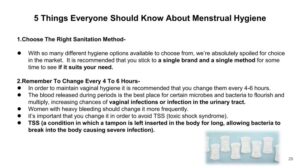
Clinical pharmacy services play a pivotal role in modern healthcare, bridging the gap between medication management and patient outcomes. By integrating these services into clinical settings, healthcare providers can ensure that patients receive optimal therapy tailored to their individual needs.
Through medication therapy management, clinical pharmacists not only evaluate the effectiveness of treatments but also educate patients about their medications, resulting in enhanced adherence and overall health. Whether it’s supporting mental health initiatives or ensuring the safety of pediatric patients, clinical pharmacy services are essential in fostering a holistic approach to patient care.
Clinical Pharmacy Services Overview
Clinical pharmacy services play a pivotal role in the modern healthcare landscape, focusing primarily on the safe and effective use of medications to enhance patient outcomes. These services are provided by clinical pharmacists who collaborate with healthcare teams to optimize pharmacotherapy and ensure that patients receive the most appropriate medications tailored to their specific health needs. By integrating clinical pharmacy services into patient care, healthcare settings can significantly improve medication management, reduce adverse drug events, and enhance overall patient satisfaction.
Role of Clinical Pharmacy Services in Healthcare Settings
The integration of clinical pharmacy services into healthcare systems is essential for improving patient safety and medication efficacy. Clinical pharmacists conduct comprehensive medication reviews and participate in interdisciplinary healthcare teams to provide expert guidance on medication therapy. This collaboration ensures that all aspects of a patient’s treatment are considered, enhancing both clinical outcomes and patient safety. Key responsibilities of clinical pharmacists include:
- Conducting patient medication assessments to identify potential drug interactions and contraindications.
- Providing counseling and education to patients regarding their medications, including usage instructions and side effects.
- Participating in rounds with healthcare teams to discuss medication management strategies tailored to individual patient needs.
- Monitoring therapeutic outcomes and making adjustments to medication regimens as necessary.
Medication Therapy Management Process
Medication therapy management (MTM) is a systematic process designed to optimize therapeutic outcomes for patients. Clinical pharmacists employ this process to ensure that medications are used effectively and safely. The MTM process generally involves the following steps:
- Medication Review: Analyzing all medications a patient is taking, including prescription drugs, over-the-counter medications, and supplements.
- Assessment of Medication Efficacy: Evaluating whether the medications are achieving their intended outcomes and if any adjustments are needed.
- Identification of Drug-Related Problems: Detecting issues such as adverse drug reactions, drug interactions, and non-adherence.
- Development of a Care Plan: Creating a personalized medication plan to address identified issues and enhance therapeutic outcomes.
- Follow-Up: Regular follow-up appointments to reassess medication effectiveness and make necessary changes to the treatment plan.
Benefits of Integrating Clinical Pharmacy Services into Patient Care
The integration of clinical pharmacy services brings numerous benefits to both patients and healthcare providers. These advantages include improved medication adherence, reduced hospital readmissions, and enhanced quality of life for patients. Specific benefits can be summarized as follows:
- Increased Patient Safety: Clinical pharmacists help reduce the risk of medication errors and adverse drug reactions.
- Cost-Effectiveness: Optimizing medication therapies can lead to reduced healthcare costs by preventing complications and hospitalizations.
- Enhanced Patient Satisfaction: Patients receiving clinical pharmacy services often feel more supported in managing their conditions, leading to higher satisfaction rates.
- Holistic Approach to Care: Clinical pharmacists contribute valuable insights into patient care, considering both pharmacological and non-pharmacological interventions.
By integrating clinical pharmacy services, healthcare systems can transform medication management into a proactive and patient-centered process, ultimately leading to improved health outcomes.
Impact on Mental Health

Clinical pharmacy services play a pivotal role in the management of mental health, providing essential support to patients through medication management, education, and collaboration with healthcare teams. By integrating clinical pharmacists into mental health treatment plans, patients can benefit from personalized care that addresses both their medication needs and overall well-being. This collaboration not only enhances treatment outcomes but also fosters a more comprehensive approach to mental health care.Clinical pharmacists support mental health treatment plans by thoroughly reviewing medication regimens, ensuring safety, efficacy, and adherence.
They provide education on medication use, potential side effects, and the importance of adherence, which can significantly improve patient understanding and management of their condition.
Medication Adherence Strategies for Mental Health Patients
Medication adherence is crucial for the effective management of mental health disorders. Non-adherence can lead to relapse, hospitalization, and deterioration of mental health. Implementing strategies to enhance adherence can significantly improve patient outcomes. The following approaches are essential in promoting adherence among mental health patients:
- Patient Education: Providing thorough education about medications, including their purpose, benefits, and side effects, empowers patients to take an active role in their treatment.
- Personalized Medication Plans: Developing individualized medication plans that consider patient preferences and lifestyle can enhance adherence by making treatment more manageable.
- Use of Reminders and Tools: Utilizing pill organizers, mobile apps, or reminder systems can help patients remember to take their medications consistently.
- Regular Follow-ups: Scheduling regular follow-up appointments allows for ongoing assessment of medication efficacy and patient feedback, fostering a sense of accountability.
Collaboration with Healthcare Providers
Collaborating with healthcare providers is essential in optimizing psychiatric medications. A team-based approach ensures that all aspects of a patient’s mental health are addressed holistically. Key methods for collaboration include:
- Interdisciplinary Meetings: Regular meetings among psychiatrists, clinical pharmacists, and other healthcare providers facilitate communication and shared decision-making for patient care.
- Medication Reviews: Conducting comprehensive medication reviews can identify potential drug interactions and optimize pharmacotherapy, leading to better clinical outcomes.
- Shared Care Plans: Developing and utilizing shared care plans ensures that all providers are aligned on treatment goals and strategies, enhancing continuity of care.
- Patient-Centered Approaches: Focusing on the patient’s goals and preferences during treatment discussions fosters trust and encourages active participation in their care.
“Effective communication among healthcare providers leads to improved medication management and better outcomes in mental health care.”
Clinical Pharmacy and Child Health

Clinical pharmacy services have become increasingly essential in the pediatric healthcare landscape, focusing on optimizing medication use in children. As children’s physiological and developmental characteristics differ significantly from adults, clinical pharmacists play a crucial role in ensuring safe and effective pharmacotherapy tailored to their needs. Through comprehensive medication management and collaboration with healthcare teams, clinical pharmacy services enhance the overall health outcomes of pediatric patients.
Overview of Clinical Pharmacy Services for Pediatric Patients
Clinical pharmacy services for pediatric patients encompass a variety of specialized practices aimed at ensuring appropriate medication use. These services include medication therapy management, pharmacokinetic monitoring, and individualized patient counseling. Pharmacists work closely with physicians, nurses, and caregivers to create tailored medication plans that reflect the unique needs of children. They conduct thorough medication reviews to prevent adverse drug reactions, interactions, and dosing errors.
Factors such as age, weight, and developmental stage are critical when determining medication regimens, making the expertise of clinical pharmacists invaluable in pediatrics. Additionally, clinical pharmacists provide education to caregivers about proper medication administration techniques, which is essential for enhancing adherence and minimizing potential risks.
Guide for Safe Medication Practices in Children
Safe medication practices are vital when it comes to administering drugs to children due to their varying responses to medications. The following points Artikel essential guidelines for safeguarding pediatric patients:
- Always consult a healthcare professional before starting or changing a medication.
- Measure doses accurately using proper measuring devices such as oral syringes or droppers, rather than household spoons.
- Store medications out of reach of children and in original packaging to avoid confusion.
- Be aware of specific storage requirements for certain medications, such as refrigeration.
- Observe the child for any unusual symptoms after starting a new medication and report these to a healthcare provider.
- Ensure that medications are administered at the correct times and under the right conditions, such as with or without food, as specified by a healthcare professional.
- Educate caregivers about the importance of keeping a medication list to track what has been administered.
These practices not only enhance the safety of pediatric pharmacotherapy but also empower caregivers to take an active role in their child’s health management.
Importance of Monitoring Side Effects in Pediatric Pharmacotherapy
Monitoring side effects in pediatric pharmacotherapy is critical due to the heightened vulnerability of children to adverse drug reactions. Children may experience side effects differently compared to adults, necessitating close observation. The importance of this monitoring can be highlighted through the following points:
- Children’s physiology can alter drug metabolism and excretion, leading to unexpected side effects.
- Adverse reactions can present differently in children, often making them difficult to recognize.
- Regular follow-up appointments are essential for assessing the child’s response to medication and adjusting treatment plans as necessary.
- Documenting and reporting side effects contribute to the body of knowledge around pediatric medications and help in refining treatment guidelines.
By prioritizing the monitoring of side effects, clinical pharmacists can ensure that any adverse reactions are identified and managed promptly, ultimately improving therapeutic outcomes for pediatric patients.
Closing Summary
In conclusion, the integration of clinical pharmacy services into healthcare delivery systems significantly enhances patient care by optimizing medication use and improving health outcomes. As the healthcare landscape continues to evolve, the importance of these services cannot be overstated, especially in addressing the unique needs of diverse patient populations.
Detailed FAQs
What are clinical pharmacy services?
Clinical pharmacy services involve the direct involvement of pharmacists in patient care, focusing on optimizing medication therapy and improving health outcomes.
How do clinical pharmacists support mental health?
Clinical pharmacists support mental health by developing medication adherence strategies, optimizing psychiatric medications, and collaborating with healthcare providers.
What is medication therapy management?
Medication therapy management is a patient-centered process where pharmacists review and manage a patient’s medications to ensure optimal therapeutic outcomes.
Why is pediatric pharmacotherapy important?
Pediatric pharmacotherapy is crucial to ensure safe and effective medication use in children, requiring careful monitoring for side effects and adjusting dosages appropriately.
How can clinical pharmacy services improve medication adherence?
Clinical pharmacy services improve medication adherence by educating patients about their medications, addressing barriers to adherence, and providing ongoing support and follow-up.





